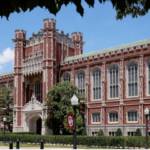Lessons From Chilean History
| Cicero wrote in 55BC “The budget should be balanced, the treasury should be refilled, public debt should be reduced, and the arrogance of officialdom should be tempered and controlled . . . lest Rome becomes bankrupt. People must again learn to work, instead of living on public assistance.”
Is there a government in recent history that inherited runaway government spending, massive debt, entitlements and interference in the economy and turned it around? Yes, Chile in 1973. Can we learn from what they did to turn around the US economy? Absolutely. As background, in 1970, Chile had the strongest economy in Latin America. Then they elected a Socialist President bent on redistributing the wealth. An outstanding speaker, he got massive subsidy/stimulus programs passed through Congress, got the Central Bank to print money to pay for all the new social programs, subsidies, government salaries and pensions, and make loans to people who did not have the ability to pay them back. He subsidized industries made uncompetitive by strong unions (e.g. automobile) or had the government take them over completely (healthcare). Within three years Chile had an economy in a tailspin, high unemployment, massive debt and high inflation. At one time Chile was the leading exporter of agricultural goods in South America. In three short years they were importing food. There was rioting in the streets and long lines to purchase basic necessities. Social order was breaking down. A leftist plot to kill key military leaders precipitated a coup in late 1973. Then a group of economists were brought in to institute free market reforms which encouraged the entrepreneurial class with a well educated workforce to draw upon. For the next 16 years Chile had the strongest real economic growth rate in the entire world according to the World Bank and the UN. Per capita income of the poor rose 1,000% in real terms! How did they do it? They stopped printing money and reduced the size of government. They did away with exchange controls and foreign investment restrictions. They reduced all protectionist tariffs, which averaged 220% in 1973, down to a flat 5%. Subsidized producers in manufacturing and agriculture screamed they would all go bankrupt without their subsidies. Some did but most found things they could produce and sell competitively on world markets. Necessity is the mother of invention. The government balanced its budget, selling virtually all government enterprises to private investors. They privatized pension funds and social security so the politicians and unions could no longer loot them. If it was in the yellow pages, they decided the government should NOT be doing it! All of this attracted capital and investors despite a worldwide attempt by Socialists countries (including most of Europe) to refuse any economic help. Despite this, the result was that Chile is the first ‘underdeveloped” country since the UN was established in 1945 to be reclassified as ‘developed.’ But in the first year of making the transition to truly free markets, the economy contracted by 25%. Initially there was more unemployment as businesses closed and/or retooled. There was a lag in hiring as new businesses needed time to put things together. So, can we learn from historical experience? Do we have elected officials who have the guts to do what must be done despite the initial pain of transition? And will we have voters educated enough to understand what must be done? N.B. The author is married to a Chilean whose family were leaders in the Socialist Allende government. He was one of the first international bankers to analyze and lend to private companies in Chile after the Socialist lost power. James F. Davis is the president of Accuracy in Academia. |




